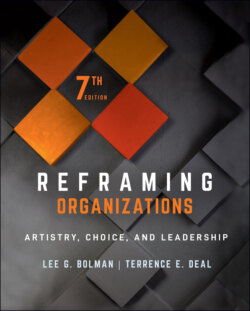Читать книгу Reframing Organizations - Lee G. Bolman - Страница 79
Greatest Hits from Organization Studies Hit Number 5: Michael C. Jensen and William H. Meckling, “Theory of the Firm: Managerial Behavior, Agency Costs, and Ownership Structure,” Journal of Financial Economics 3 (1976), 305–360.
ОглавлениеThis classic article, fifth on our list of works most often cited by scholars, focuses on two central questions:
What are the implications of the “agency problem”—that is, the conflicts of interest between principals and their agents?
Given those conflicts, why do corporations even exist?
An agency relationship is a structural arrangement created whenever one party engages another to perform a task. Jensen and Meckling's particular focus is the relationship between a corporation's owners (shareholders) and their agents, the managers. Principals and agents both seek to maximize their own interests (utility in economics‐speak), but their respective interests often diverge. If you are a sole proprietor, a dollar of the firm's money is a dollar of yours as well. But if you are an employee with no ownership interest, you're spending someone else's money when you pad your expense account or schedule a business meeting at an expensive resort.
One rationale for linking executive compensation to the price of the company's stock is that it may reduce the agency problem, but the impact is often marginal at best. A notorious example is Tyco's chief executive, Dennis Kozlowski, who reportedly spent more than $30 million of company money to buy, furnish, and decorate his palatial apartment in New York City (Sorkin, 2002). Nonexecutive shareholders hate this kind of thing, but it is difficult for them to stay abreast of everything management does, and they can't do it without incurring “monitoring costs”—time and money spent on endeavors like supervision and auditing.
One implication the authors draw is that the primary value of stock analysts is their sentinel function. Their ability to pick stocks is notoriously poor, but their oversight puts heat on managers to serve shareholder interests. The article also concludes that, despite agency conflicts, the corporate form still makes economic sense—managers cost more than owners wish, but they still earn their keep.
The agency problem is a persistent feature of cooperative activity. Relationships between a team and individual members, or between a boss and a subordinate, is like that between principal and agent. If members of a team share rewards equally, for example, there is an incentive for “free riders” to let someone else do most of the work. Principals face a perennial problem of keeping agents in line and on task.
